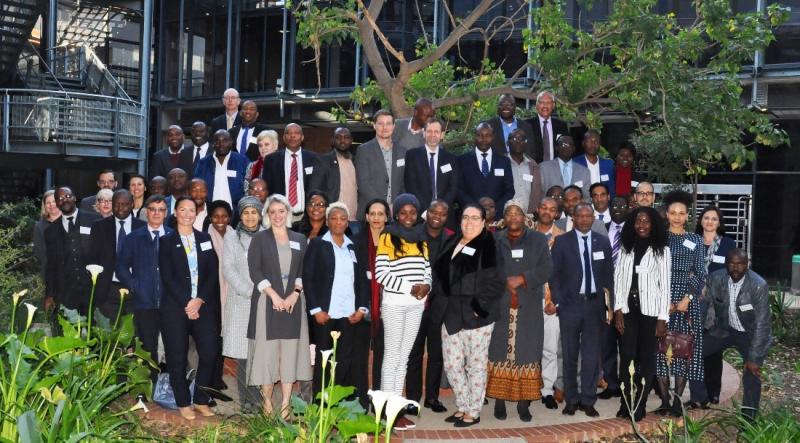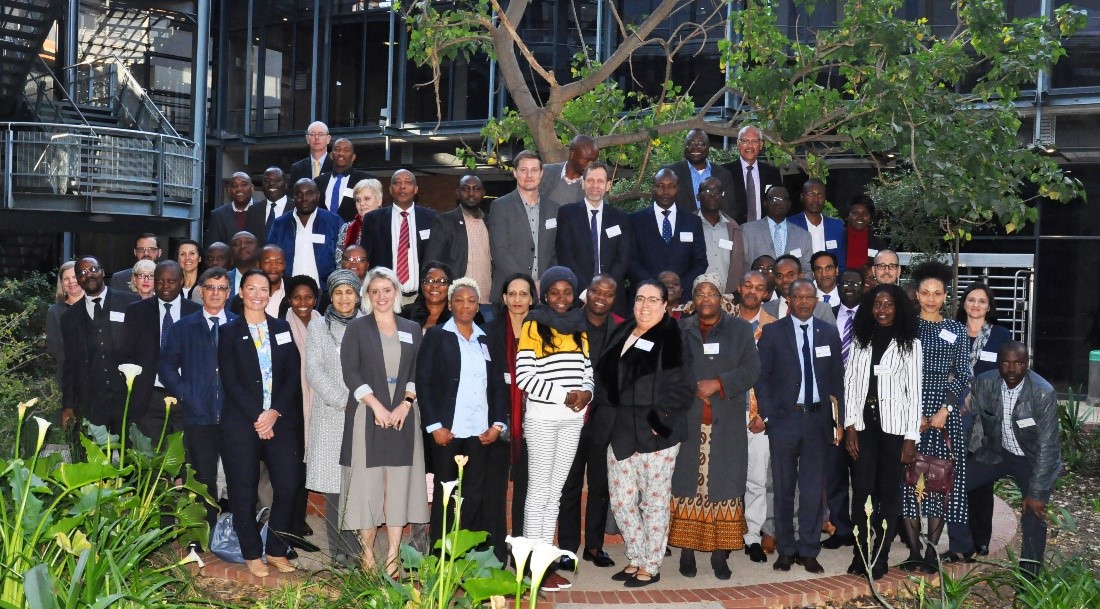
WHO Guidance for Collaboration and Partnership Highlighted at South Africa Workshop on Biosafety and Biosecurity
June 24, 2019
The risk of a catastrophic biological event continues to be magnified by global travel, urbanization, terrorist interest in weapons of mass destruction, and rapid advances in technology. Despite these risks, most countries in Africa have little to no demonstrable biosecurity, biosafety, and biorisk policy and management capacity.
WHO was asked to participate in a workshop as part of Africa Centres for Disease Control and Prevention’s (Africa CDC) "Initiative to Strengthen Biosecurity and Biosafety" between 24-26 June. The workshop was hosted by Africa CDC in Johannesburg, South Africa.
Through the initiative, Africa CDC will work with regional organizations, Member States, and partners to develop and implement strategies for addressing capacity gaps at both the national and regional levels and develop model policies, legal frameworks, and measurement tools that advance biosafety and biosecurity across Africa. The goal is to assist African Union Member States in their efforts to achieve WHO Joint External Evaluation (JEE) biosafety and biosecurity targets, as part of the Global Heath Security Agenda, as well as to meet the obligations under the Biological Weapons Convention (BWC) and the United Nations Security Council Resolution 1540 (UNSCR 1540) regarding the non-proliferation of weapons of mass destruction.
WHO emphasized that collaboration and partnership is crucial to strengthen biosafety and biosecurity, and global health security, during the inaugural Southern Africa Regional Collaborating Centre Technical Workshop as part of the Africa CDC Initiative to Strengthen Biosafety and Biosecurity.
Participants were introduced to the WHO resources available to build collaboration and partnership for the strengthening of biosafety and biosecurity capacities. These resources include the Guide for Multisectoral Preparedness Coordination for IHR and Health Security, the National Collaboration Framework for the Civilian and Military Health Sectors, and the Resource Mapping tool for the implementation of national health security action plans. WHO also highlighted the online SPH Portal as a resource for sharing information and data related to health security, increasing transparency, and avoiding duplication among Member States, partners and donors.
WHO contributed with other participants to establish a common understanding of how existing mechanisms such as the International Health Regulations (IHR, 2005), UNSCR 1540 and the BWC complement each other and why partnerships and collaboration for biosecurity and biosafety are a necessity for progress in biosafety and biosecurity. WHO also outlined assessment and planning tools, including the WHO Benchmarks for IHR Capacities, and updated participants on the revision of the WHO Laboratory Biosafety Manual.
